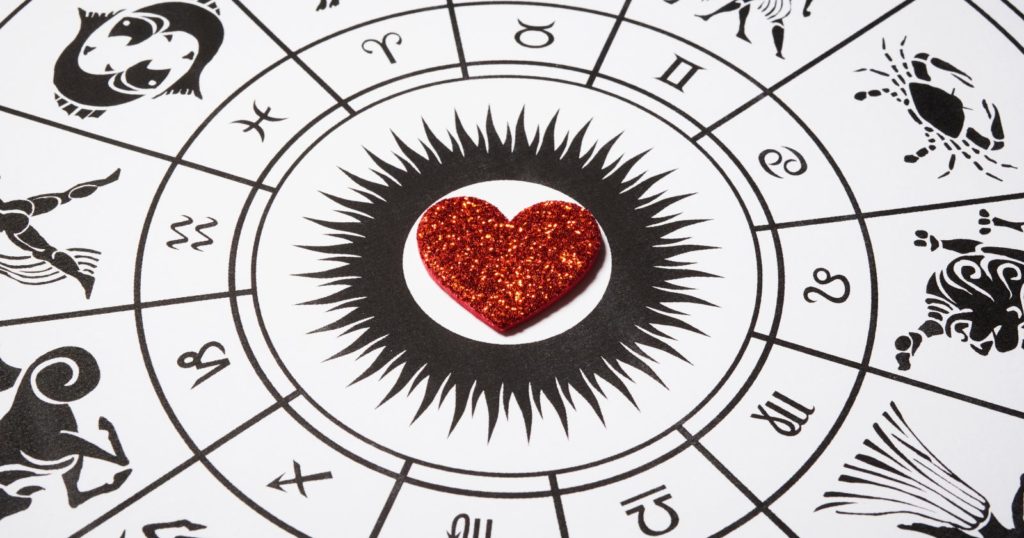A Celestial Introduction to Astrology and Love
Astrology, the study of celestial bodies and their influence on human affairs, has been a guiding light for individuals seeking insights about their personal lives for centuries. Despite the often scientific skepticism, a significant part of the global population turns to astrological signs for an understanding of their personalities, career paths, and of course, their love lives.
Astrology proposes that our individuality and the course of our lives are influenced by the positioning of stars and planets at the time of our birth. These astrological configurations can supposedly foretell who we might connect with and even who we might end up marrying.
That said, the celestial sphere’s labyrinth is vast and complex. Interpreting its signals requires a degree of expertise and a keen eye for the nuances of astrological patterns. This article will present a deep dive into astrology’s influence on marriage and provide you with 5 astrological secrets that can predict your future spouse.
1. Understanding the Role of the Sun Sign
The Sun Sign, commonly referred to as our ‘Zodiac Sign,’ is the fundamental unit of astrological interpretation. Born from the position of the Sun at the time of our birth, it forms the core of our astrological identity and is widely used in determining compatibility between individuals.
Traditionally, some sun signs are seen to be more compatible than others. For example, fire signs like Aries, Leo, and Sagittarius are usually considered more compatible with air signs like Gemini, Libra, and Aquarius. Meanwhile, earth signs (Taurus, Virgo, Capricorn) generally mesh well with water signs (Cancer, Scorpio, Pisces).
However, it’s crucial to remember that these are broad categorizations and do not take into account the full astrological profile of an individual. While sun sign compatibility can be a helpful guide, it’s not definitive. Compatibility is nuanced and depends on various factors like upbringing, personal experiences, and individual aspirations. Astrology can act as a tool to understand these nuances better and provide potential insights into who you might marry.
A 2017 study published in the journal Personality and Individual Differences, while not endorsing astrology, showed a correlation between belief in astrology and relationship choices. Individuals who held a strong belief in astrology were more likely to select partners based on their zodiac compatibility. This study showcases how beliefs in astrology can influence relationship choices and potentially point to who one might marry.
2. The Importance of Venus and Mars
While Sun Signs are the most visible aspects of astrology, planets Venus and Mars hold significant sway in the realm of love and relationships.
In astrology, Venus is the planet of love, attraction, and beauty. It represents how we express affection and the qualities we seek in a partner. On the other hand, Mars, often called the planet of passion and drive, governs our physical attraction and raw energy.
Understanding the positioning of Venus and Mars in your astrological chart can give insights into the kind of partner you’re likely to attract or be attracted to. For instance, a person with Venus in Gemini might be drawn to individuals who are intellectually stimulating, while Mars in Taurus could indicate a preference for stability and comfort in relationships.
A study from the Journal of Consciousness Studies (2012) found that people who knew about their Venus and Mars signs often recognized the traits associated with these signs in their romantic relationships. This implies that understanding these planetary positions can offer valuable insight into our attraction patterns and possibly predict the type of person we might marry.
3. The Significance of the Seventh House
In astrology, the Seventh House, also known as the House of Partnerships, governs all kinds of partnerships including marriage. This House, and the signs and planets within it, provides a roadmap to understanding your marriage prospects and the traits you’ll likely find in your spouse.
The sign ruling the Seventh House, known as the Descendant, can offer clues about the qualities you seek in a partner. For example, if your Seventh House is ruled by Capricorn, you might be attracted to partners who are disciplined, ambitious, and reliable.
Planets within the Seventh House also play a significant role. If Venus resides in your Seventh House, you may be drawn to romantic, affectionate, and peace-loving individuals. However, Mars in the Seventh House might lead you to dynamic, assertive, and somewhat competitive partners.
The influence of the Seventh House in predicting marital prospects is well-documented in various astrological texts. For instance, in “Astrology: A Cosmic Science,” author Isabel M. Hickey emphasizes that the Seventh House’s characteristics significantly contribute to understanding one’s marital destiny.
4. Synastry: The Astrology of Relationships
Synastry, or the comparison of two individuals’ astrological charts, is an integral part of astrological love predictions. By overlaying your astrological chart with that of a potential partner, you can gain insights into how your planets interact, highlighting areas of harmony and potential discord.
Consider synastry as a cosmic compatibility test. It considers the Sun, Moon, and Ascendant (or Rising Sign), along with other planets and points in your charts. The aspects, or angles, that planets from both charts make with each other can indicate the nature of the relationship.
For instance, your Venus forming a trine (an aspect indicating harmony) with your partner’s Mars could signify a strong romantic and physical attraction. Conversely, your Saturn squaring (an aspect showing tension) your partner’s Sun could suggest power struggles within the relationship.
Bernadette Brady’s book, “Relationships and How to Survive Them,” uses synastry to explore the dynamics of different relationships. She states that understanding synastry can shed light on the inherent strengths and weaknesses of a relationship, helping to identify long-term compatibility – and potentially, the person you’ll marry.
5. Composite Charts: A Snapshot of Your Relationship
While synastry compares individual charts to understand relationship dynamics, a composite chart combines two individuals’ charts to create a new, separate chart for the relationship itself. It symbolizes the relationship as a distinct entity and can predict its evolution.
The composite chart considers the midpoints between the same points or planets in two people’s charts. For example, the composite Sun – the midpoint between both individuals’ Suns – indicates the relationship’s core identity. A composite Sun in Libra might suggest a relationship that thrives on balance, harmony, and shared decision-making.
In his book “The Composite Chart,” renowned astrologer John Townley explains that composite charts provide a holistic view of the relationship and can be a powerful tool in predicting the trajectory of marriages. Thus, composite charts might reveal whether the relationship has the potential to lead to marriage and what that marriage might look like.
Astrology offers a unique lens through which to view love and marriage. By understanding your astrological chart and the charts of potential partners, you can gain intriguing and sometimes eerily accurate insights into your romantic destiny.
Drawing the Astrological Roadmap to Your Future Spouse
As we journey through the celestial sphere’s mysteries and marvels, we come away with a deeper appreciation of astrology’s rich tapestry. Through the astrological signposts, we have navigated our way towards a greater understanding of the cosmic indicators of love and marriage.
Astrology, with its millennia-old wisdom, unfolds the potential patterns and paths in our lives. It helps us comprehend the complex interplay between celestial bodies and human experiences, especially in the sphere of romantic relationships and marriage.
In this voyage, we have unearthed the significance of sun signs as the initial guiding light illuminating the contours of our personality and hinting at compatibility with others. We have explored Venus and Mars, the cosmic dance partners symbolizing love, attraction, passion, and drive, all elements shaping our relationship dynamics.
Our exploration led us to the Seventh House, the astrological realm of partnerships. We learned how the sign governing this house and the planets residing within it sketch a picture of the traits and qualities we seek in our future spouse.
Our journey was enriched by the insights from synastry, the celestial compatibility checker. It offered us a novel way to look at our relationships, considering not just individual planets but their aspects or angles to one another. A reminder that the energy between two individuals extends beyond themselves and shapes the space they share.
Finally, we ventured into the realm of composite charts. As if looking into a crystal ball, composite charts show us the future trajectory of a relationship, serving as an intriguing tool to predict if and how a relationship might culminate in marriage.
While astrology can point towards possibilities, it’s essential to remember that it doesn’t bind us to a preordained fate. The universe’s fundamental law is free will. You, as an individual, possess the power to shape your destiny. Astrology can guide and inform, but the ultimate decision rests in your hands.
The key lies in using these astrological insights to foster self-awareness and growth, to make informed choices, and to nurture meaningful relationships. After all, the beauty of astrology resides not just in its predictions but in its ability to reflect our inherent human desire to understand ourselves and our place in the universe.
In the grand scheme of things, who we marry is one of life’s profound decisions, heavily influenced by numerous factors. Astrology can be a companion on this journey, shedding light on hidden aspects of our personalities and relationships. Whether you’re an astrology aficionado or a curious skeptic, the secrets held within your astrological chart may offer unique and surprising insights into your journey of love.
In conclusion, as we reach the end of this cosmic exploration, it becomes clear that astrology provides a rich, nuanced perspective on love and marriage. Astrology invites us to take a step back and look at the big picture, to see our lives and relationships against the backdrop of the universe’s grandeur. The cosmos may not have all the answers, but they might just have the clues. Look up, and let the stars guide your heart’s journey.
Resources:
- Hickey, Isabel M. “Astrology: A Cosmic Science.” CRCS Publications, 1992.
- Brady, Bernadette. “Relationships and How to Survive Them.” Wessex Astrologer, 2015.
- Townley, John. “The Composite Chart.” Llewellyn Publications, 2000.




